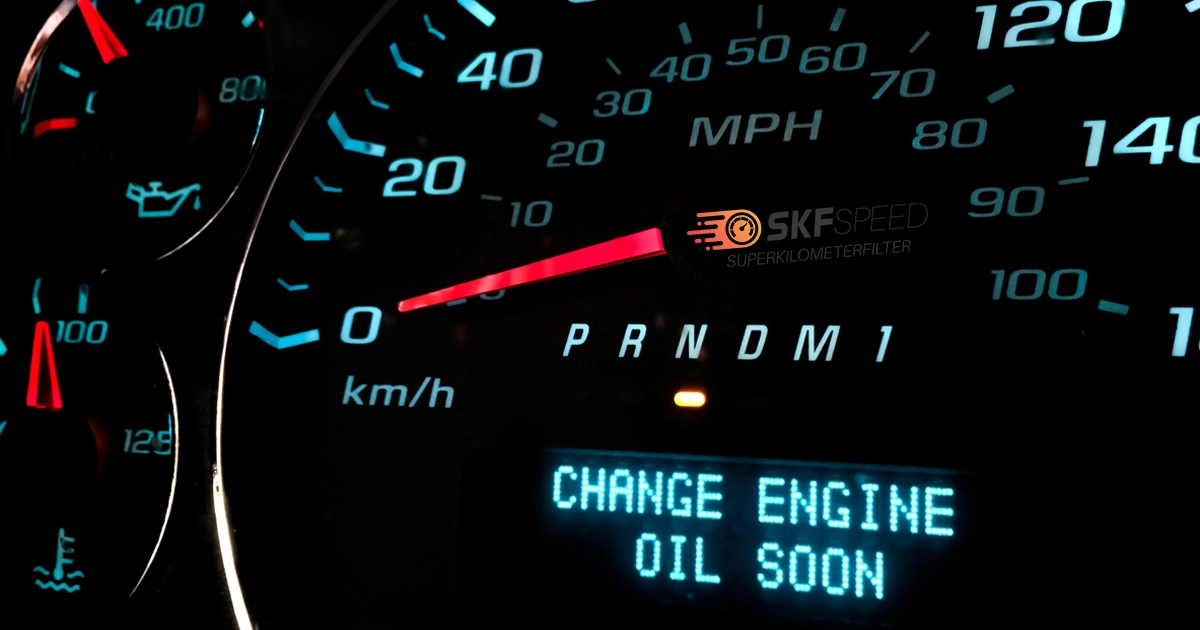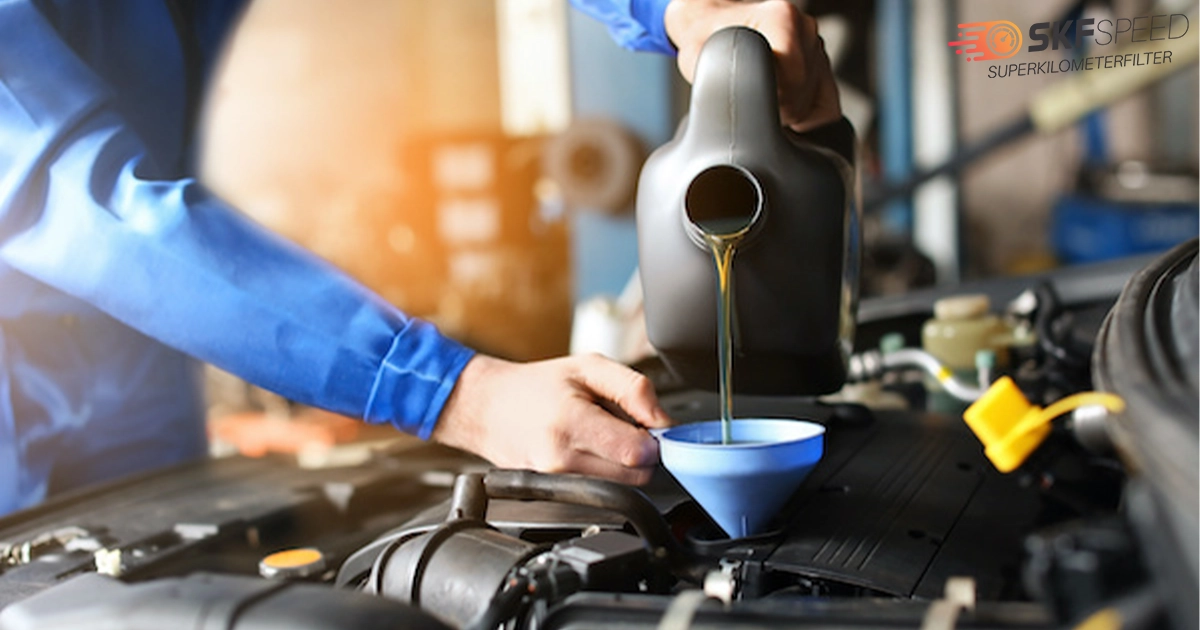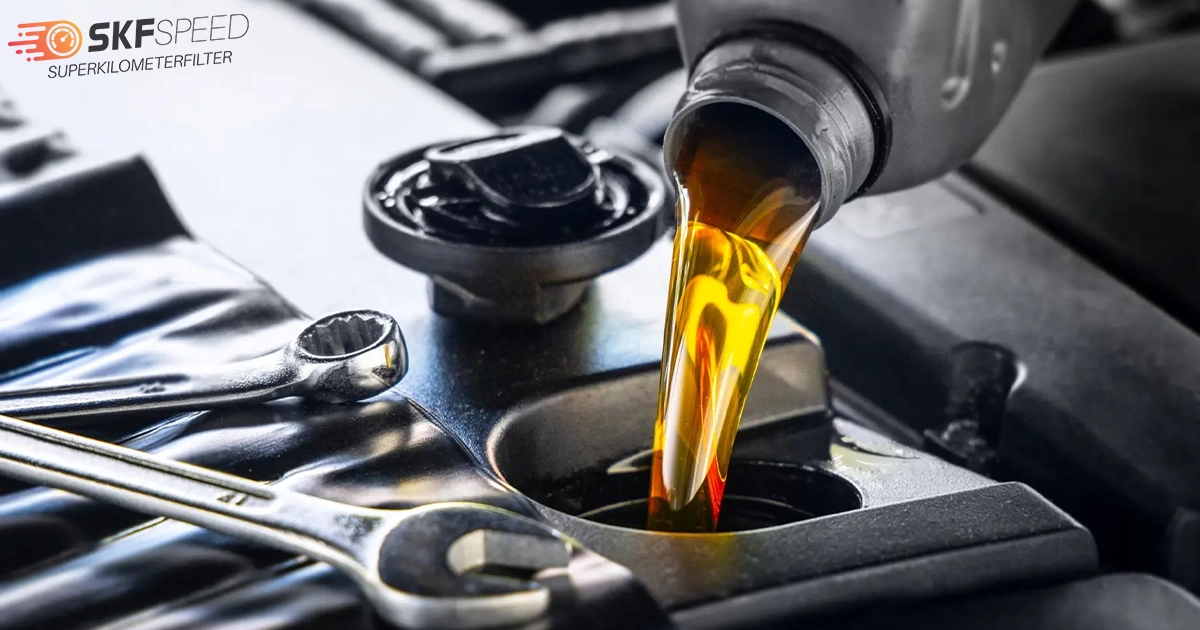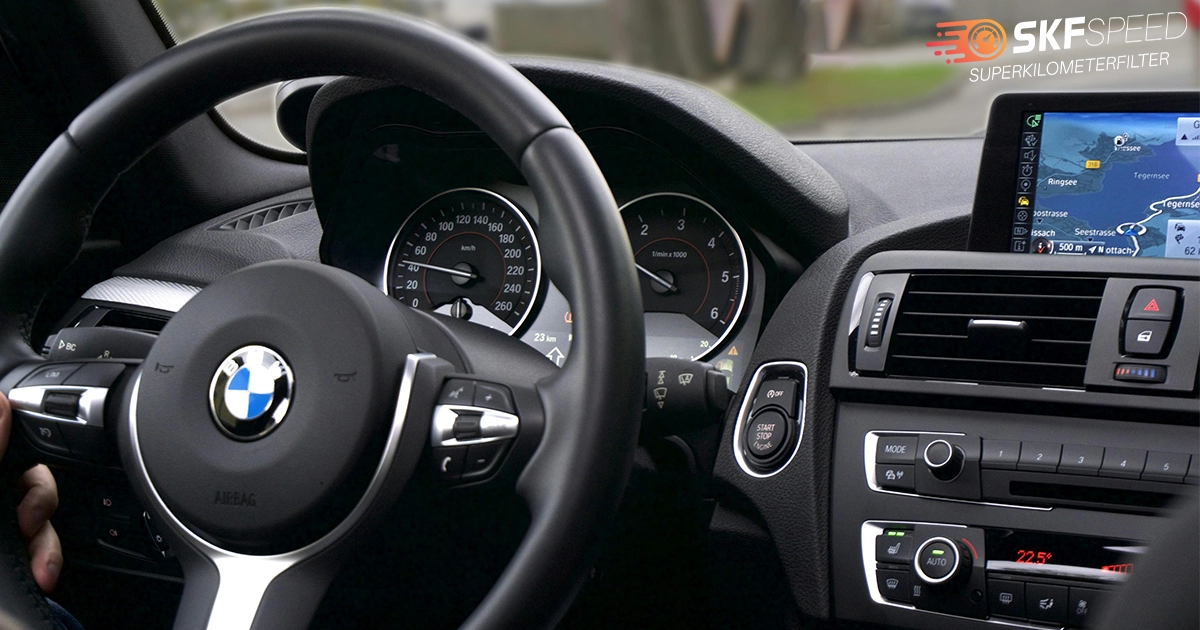
Oil change mileage is an important milestone for every car owner, and it is an alerting sign that the engine needs timely oil replacement to run smoothly. Hence, if you ignore this sign, you have to face the consequences. Consistency is the key in all aspects of car maintenance, especially when it comes to worn-out component replacement as well as providing fresh lubricants to ensure optimal performance.
Through time, engine oil becomes useless, dirty, and thick, so it is no longer effective and doesn’t do its primary job. Moreover, if you ignore the need to replace it on time, it will lead to more serious issues, such as bad fuel efficiency or engine breakdown. Surely, a little delay doesn’t have serious consequences, and it doesn’t harm anything, while ignoring it for a long time may be worth a fortune.
In the blog below, we discuss the reasonable timing for changing your oil, the connection between mileage and scheduled maintenance tasks, what to do if you skipped the recommended replacement interval, and the reliability of the manufacturer’s recommendations.
Oil change mileage refers to the mileage interval when it is recommended to change oil; nowadays, it is between 5,000 and 7,500 miles due to the advancement of automotive technology and oil quality, while the milestone was much lower, below 3000 miles in the nearest past. Surely, intervals are not always universal, as factors influencing the maintenance intervals may have different outcomes in each case. For example, road conditions, fuel delivery systems, car manufacturers, and oil type are all factors that can also be decisive when it comes to optimal timing for lubricant replacement.
For new vehicles, things are much easier to manage because they have a warranty and owner’s manual, where one can find all necessary recommendations for scheduled maintenance. Additionally, modern vehicle instrument clusters display all types of data, including the remaining time before the nearest time when you need to change your oil.
Is it very risky when replacement is delayed? In the following paragraph, we discuss the possible consequences you may face in this case.

Delaying the necessary oil service may result in various kinds of issues, starting from unimportant, minor issues and ending with complete failure of the engine. In the following, we will list the different types of cases you may come across due to delayed service when a car reaches oil change mileage.
Oil degradation happens because of various reasons. Over time, it breaks down because of heat and chemical reactions. Hence, oil loses the ability to function properly and protect the engine. It may lead to potential motor overheating.
Dirt, air, and water also affect the oil. Dirt contains particles that speed up the process of degradation. Air and water are also sources of oxygen, which reacts with lubricant and causes oxidation. Oxidation is a series of chemical reactions that leads to the complete degradation of lubricant.
Fuel economy is one of the most prioritized topics for many drivers, especially if they choose automobile manufacturers that boast of fuel-efficient automobiles. Degrade and thickened oil have trouble having a good flow in the engine. Hence, the engine has trouble performing normally and consumes more fuel than usual. As you can see, there is a direct correlation between problematic lubrication and fuel efficiency. Change your oil to avoid exaggerated fuel consumption.
It’s no longer surprising that all the above-mentioned indicate that the automobile’s overall performance will not be satisfying. Contaminated oil interrupts engine responsiveness. Hence, automobiles have trouble accelerating, troubled starting, and unusual noises.
Nothing can be a more serious issue of the automobile than a complete engine breakdown. Ignoring the need for lubrication service may lead to the complete failure of the core component of every automobile. It is a severe issue which can be a huge financial commitment. Engine replacement costs vary greatly as the price depends on various factors such as model, brand, age, car type, etc. It depends a lot on whether you own a domestic brand, economy model or imported luxurious model. The general costs range from $4,000 and $10,000.
There is no universal format that lets you ignore oil change mileage completely. However, several factors let you maximize the time when you add up miles on the odometer without worrying too much about potential replacement in the long run.
A manufacturer’s recommendation is a specific guideline that helps every car owner plan a maintenance schedule that is specific for every vehicle. If you follow it you can be sure that everything will go well. It is a guideline where you can find all the information you may need, including the type of oil that works best. For example, it is known that BMW’s engine needs high-quality synthetic oil to perform at its best. As for the recommended interval, on average, most makers claim to change your oil after 10,000 miles.
There are 4 types of engine oil: conventional, synthetic, semi-synthetic, and high-mileage oil. Each has its particular characteristics and usage.
Change your oil by schedule greatly depends on the age of the automobile. When components experience more wear and tear, it takes effort to lubricate them optimally. Hence, lubricants should be high-quality and powerful to do their primary job. Otherwise, you may need to be more alert about this topic; sometimes, aged automobiles no longer have enough resources because of wear and tear.
When it comes to older vehicles, scheduled maintenance is not enough. Preventative measures are also important. Sometimes, fluid leaks are very common for them. If you fix that on time, it reduces the risk of environmental pollution. Environmentally friendly decisions are vital nowadays when there is a severe problem of pollution on the earth.
Some drivers may underestimate their lifestyle, and driving habits influence the frequency of the need for maintenance and reaching oil change mileage. However, all of these have a great impact on the general lifespan of the vehicle.
For example, you may not live near your job, and you need to drive a long distance routinely. You don’t use your automobile and choose to use public transport. On the other hand, you may love to travel long road trips with your family. Situations vary; it depends on how fast drivers accumulate mileage.
Would you change your lifestyle and driving habits if you managed better to avoid accumulating additional miles on the odometer? Below, you will find several tips that will help you to avoid a lot of miles on the odometer.
You can avoid additional miles on your automobile if you modify your driving habits. Keeping driving habits in mind will help you delay the time when you change your oil. Here are several recommendations:

Rollbacking extra mileage is a common practice nowadays. However, when it is done with the intent of deceiving potential buyers, it is a fraud. According to NHTSA, Odometer fraud is an illegal practice of disconnection, resetting, or alteration of a vehicle’s odometer with the intent to change the number of miles indicated.
However, correcting and halting mileage with the purpose of testing in a controlled environment is absolutely acceptable in most countries. Mileage blocker from Super Kilometer Filter is an advanced tool, that can halt the mileage recording process when you want to test your automobile without accumulating additional miles on the odometer.
No, no one is able to trace the mileage that was stopped while using the device; SKF mileage blocker halts the mileage recording process from all control units. The information is not stored in any control unit. Mileage blocker is an outstanding tool due to the special features it offers:
You can buy Mileage blocker directly from SKF website if you want to enjoy all benefits mentioned above. For additional information, please check the support page.
Oil change mileage is an alerting odometer reading milestone when you know that you need to replace the lubricant along with other scheduled maintenance tasks. It depends on various factors on how long lubricants last for individual vehicles. What kind of oil you choose, what type of car you own, and what your driving habits are always matters. Timely components and lubricant replacements are always smart if you take care of your automobile and want to expand its lifespan.




Here you will find all the details about our company
Here you will find shipping and return related information
Here you will find information on all technical questions
Here you will find helpful information about installation